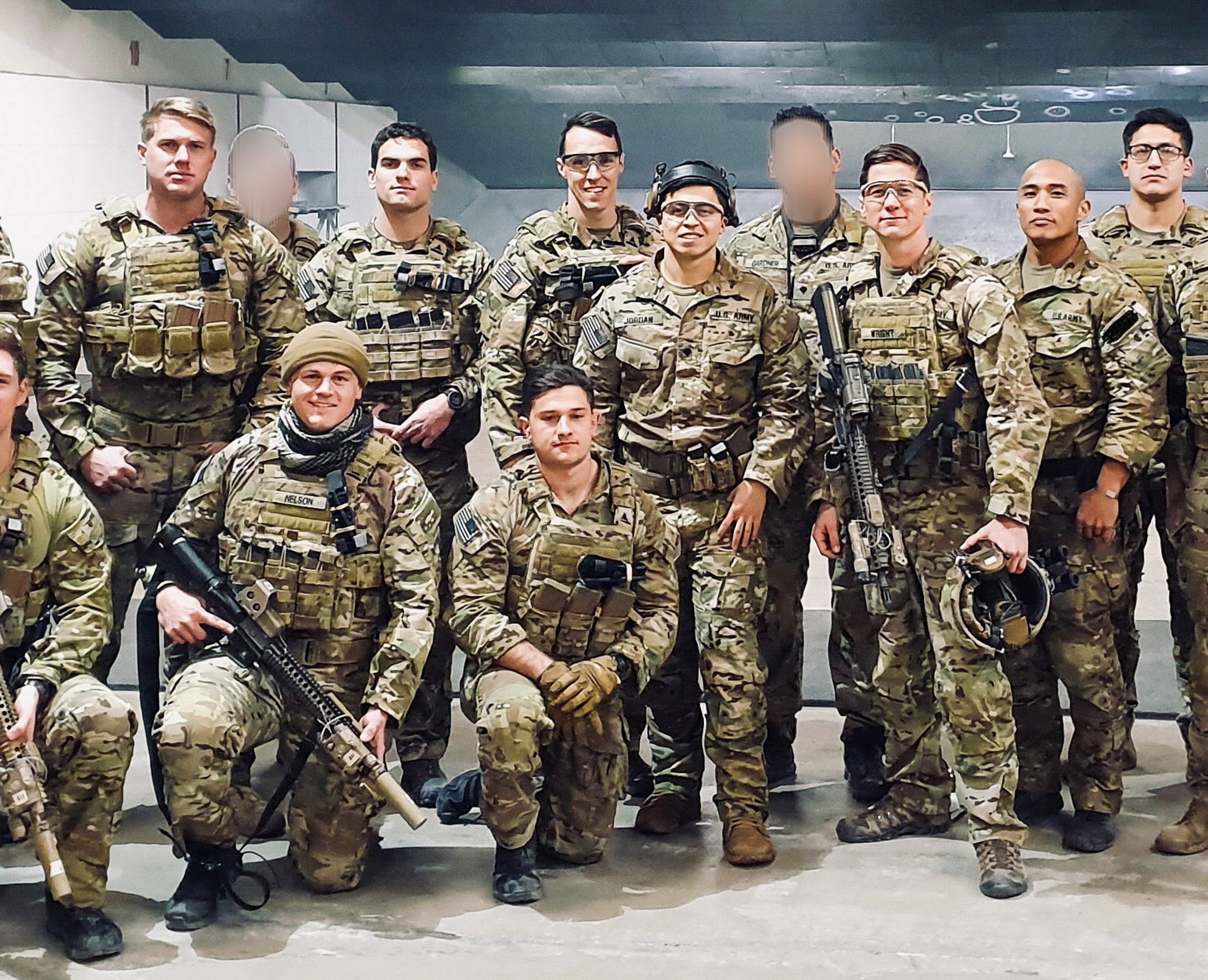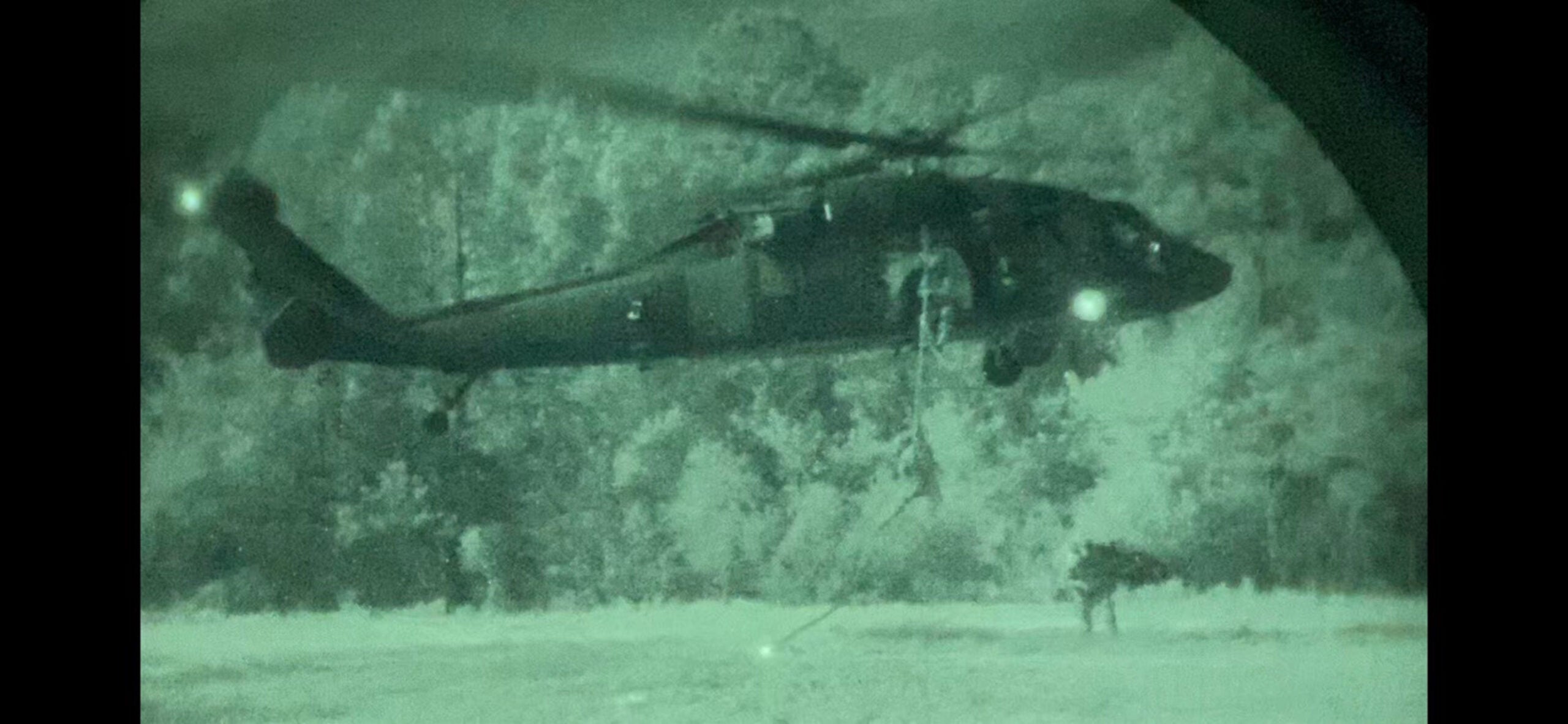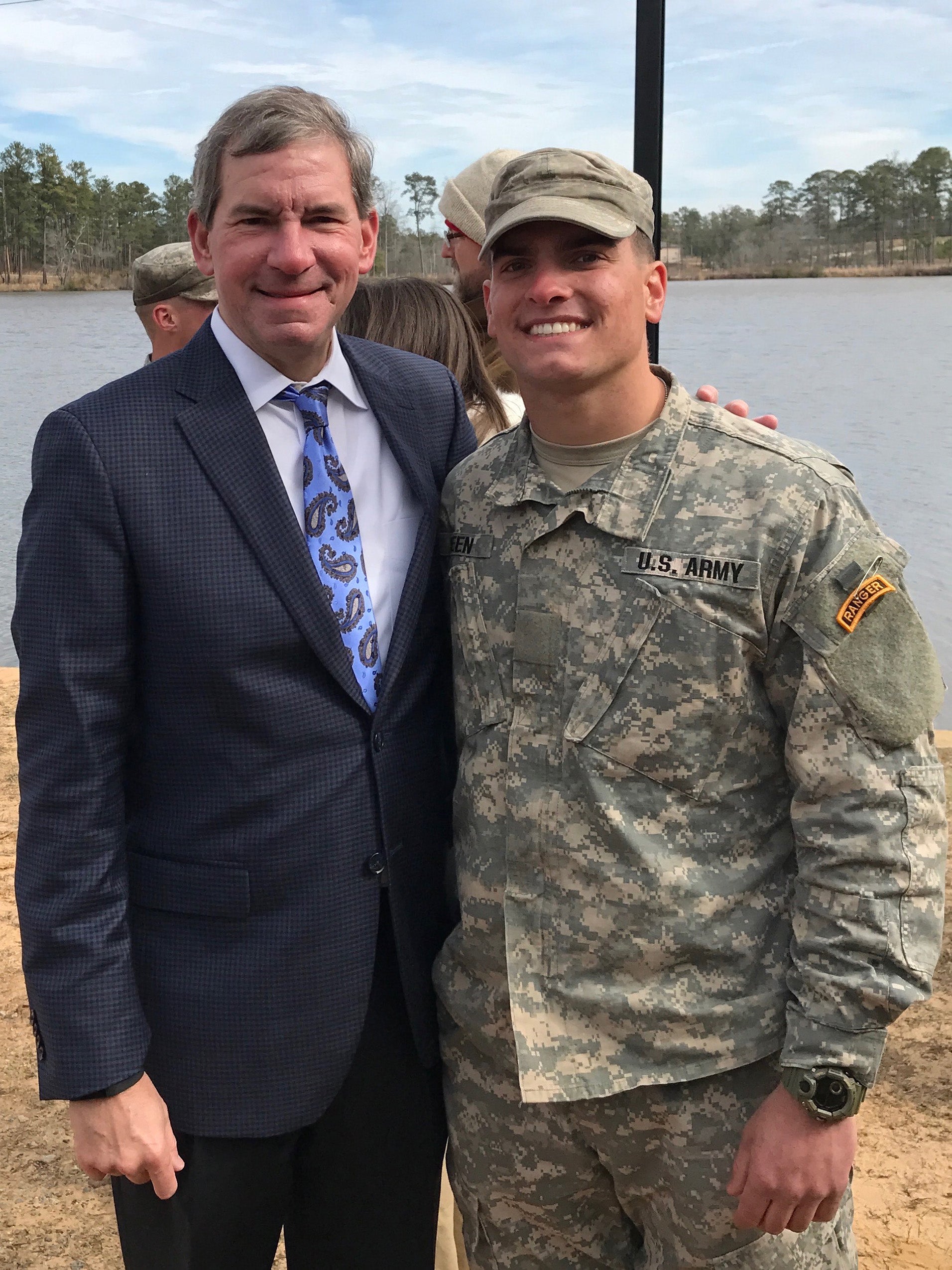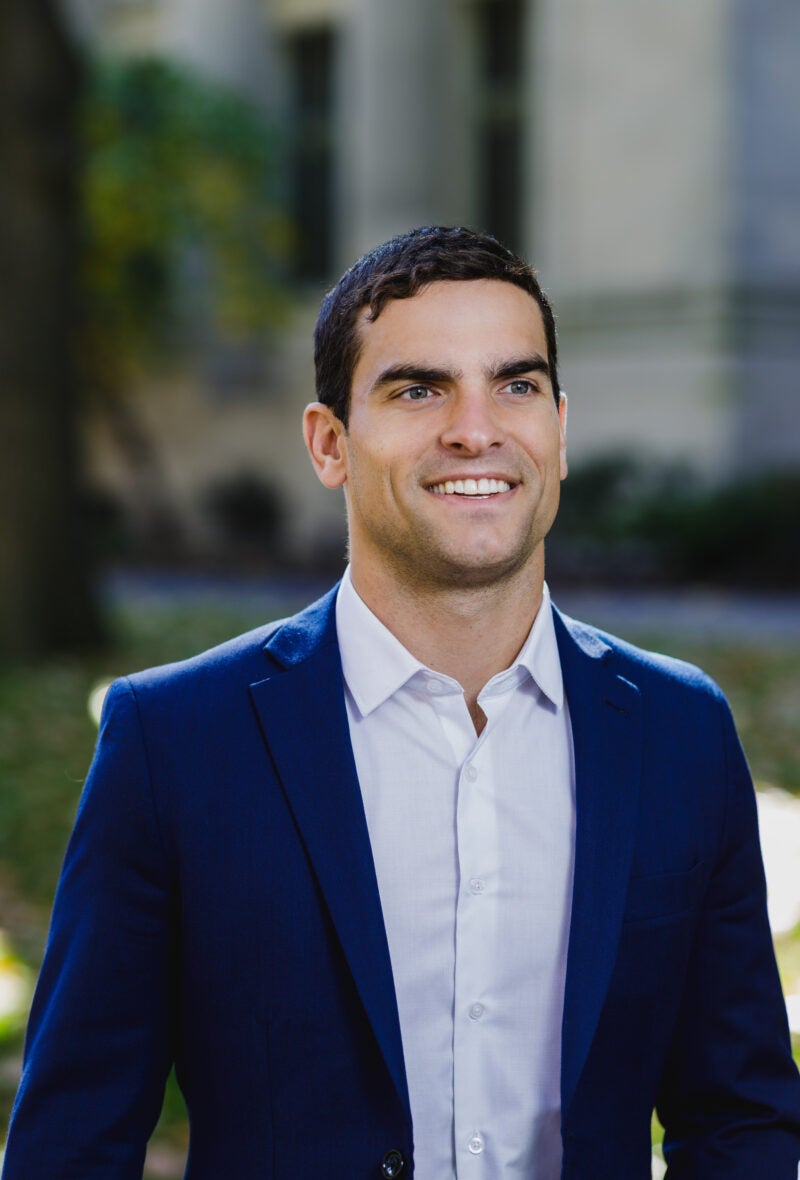Andrew Steen was cruising down an Ohio highway in the fall of 2021 heading to Harvard to begin a dual graduate degree when his phone pinged. It was a dear friend desperate for help.
Steen, a former Army Ranger with the 75th Ranger Regiment, didn’t hesitate. He pulled his U-Haul to the side of the road and spent the next hour texting and calling his military and government friends. He was trying to help Najibullah, a member of the Afghan Special Forces who had worked closely with Steen during his two tours in Afghanistan, escape a nation in chaos as U.S. troops evacuated and the Taliban took over.
Steen was determined to get his friend, whom he refers to as “his brother,” and his family to the airport and onto a departing flight. But the crush at the gates by others in a panic to flee the country was too great. For days, Steen tried unsuccessfully to help. In the end, British forces were able to evacuate them. Steen remembers the relief and joy he felt when he heard the news. And he’ll never forget meeting up with Najibullah this summer in London, sharing a Guinness, walking the streets chatting and telling jokes.
Seeing his friend’s resilience in the face of such hardship inspires him to this day.
“I truly couldn’t imagine what it would be like to grow up like Najibullah, living in a country torn apart by war for nearly 40 years. By comparison, the problems and stressors in my life were miniscule, yet Najibullah consistently seemed to have an unabatingly positive attitude; oftentimes, it was far more positive than my own despite our different circumstances. Witnessing firsthand how he carried himself during and after such traumatic experiences drives me to at least try to keep a positive attitude in difficult times.”
Learning how to face difficult times, and to put others first “something the 75th Ranger Regiment prides itself in,” are some of his key takeaways from his time in the military, says Steen. He credits the Rangers with instilling in him virtues like humility and resilience, and with helping him understand the importance of teamwork and giving back.
While on campus he is hoping to share the lessons he’s learned with his Harvard classmates, he says, and with those beyond Harvard’s gates when he graduates in 2025 with a joint degree from Harvard Law School and Harvard Business School.


“Being in the 75th Ranger Regiment has taught me that success and failure largely hinge on the team, not the individual,” says Steen. “There were so many humble and amazing people I worked with who helped me along the way, and I really hope I can impart the power of trust, gratitude, and humility to others. I don’t really ascribe any of the success that I had in the military to myself – I truly think credit is due to those that worked alongside me. I feel like I simply stood on the shoulders of giants.”
He also hopes to impart a leadership style he honed during his time in the service.
“Veterans can bring so much value to the HLS community by being exemplars of leaders who look in the mirror when things go wrong and look out the window when things go well,” Steen adds, quoting a popular military mantra.
Steen credits the Army Rangers with instilling in him virtues like humility and resilience, and with helping him understand the importance of teamwork and giving back.
Something else Steen has learned from his time overseas in a nation torn by violence and war is the ability to put himself in someone else’s shoes. He spent five years with the Army Rangers, one of the military’s premier special operations units that conducts direct action raids and covert missions into enemy territory. During two tours in Afghanistan Steen managed various Ranger forces that aimed to disrupt Taliban and ISIS offensives throughout the country, and he his team engaged with Afghans who held a range of affiliations and loyalties. Interacting with and observing those on all sides of the conflict helped shift his perspective.
“Obviously there are members of terrorist organizations that need to be dealt with,” says Steen. “But from my interactions I realized there are also marginalized people whose life circumstances have led them down a certain path. And who’s to say I would have made a better choice had I been born into their situation? It is an incredibly complex situation and not as black-and-white as I originally thought.
“I think there’s this sense of shared humanity there that’s really hard to grasp unless you go out and experience it first-hand.”

He learned another important lesson about overcoming adversity during Army Ranger School, an intense two-month program that he says, “strips away life’s niceties.” Sleep and food were in short supply and being perpetually cold was a given. One night he dozed off while in charge of a training exercise and was awoken by his instructor.
“He just said, ‘do better Ranger,’ and then he walked away. I failed in my job that night with no excuse, and somehow that direct, terse guidance from my instructor was really eye-opening.”
The reproach stung. And it stayed with Steen who began to understand that Ranger School’s boot camp’s regimen of pain, suffering and endurance was designed to teach him how to remain calm and make good decisions under the most difficult circumstances. Going forward, instead of seeing his training in terms of the “hardships it posed,” Steen says he used it to deepen his commitment to responsibility, collaboration, and respect.
“I realized I was doing this for a purpose, that this job had a lot of weight and that people’s lives were in my hands and that my ability to do the job would help them. I made countless mistakes at Ranger School, and I am grateful for their associated lessons.” That outlook has helped him thrive at Harvard.
Steen also sees his work in the military helping inform his career post Harvard in the business and legal sectors. He is deeply interested in entrepreneurship and the Effective Altruism movement and in using a business and a legal lens to examine solutions to global threats like climate change, political polarization, bioterrorism, and nuclear proliferation.
“I think that business, the law, and regulations will be part of the solution to some of these issues, that’s really the reason behind my J.D./M.B.A.,” he says.
When not studying intense legal briefs or prepping for class, Steen also makes time for volunteering. He is currently working with three different nonprofits, two focused on veterans and the other on high school students.
“I see volunteering as another important way to use what I have learned in my own life to give back,” says Steen. “I realize not everyone is as lucky to have had the kind of support I’ve had in my life and career, and I want to take advantage of that luck in whatever way I can to help others.”
